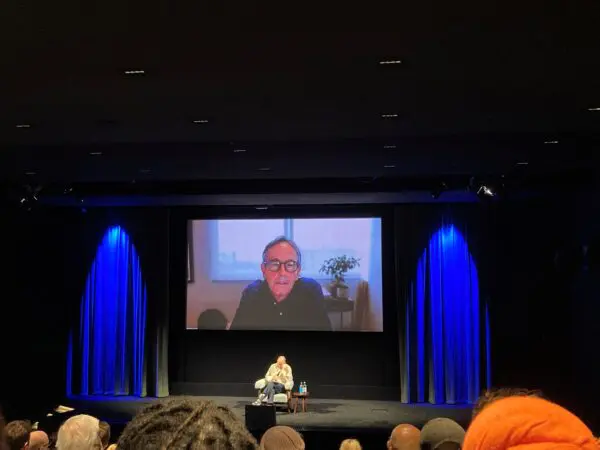In his early years, Goyer wasn’t about to take himself too seriously either.
“Everyone wants to write an Academy Award winning film, or a BAFTA winning film their first time out. But there’s nothing wrong with learning your craft in the trenches.”
Goyer’s personal trench was Death Warrant, a nineties action film starring Jean-Claude Van Damme. While he notes it wasn’t his “finest hour”, he’s not embarrassed by it either: “in those days, B movies were a good place to earn your water wings.”
With his water wings firmly earned, Goyer went back to the office to sit down and write a film without any editorial interference. The result was the Blade trilogy and it’s the screenplay which Goyer cites as the moment when he felt he could finally call himself a screenwriter. He even got business cards printed up as a nod to his new found profession. It wasn’t a move that went down well with his mentor, Nelson Gidding, who threw the card in the bin. Gidding said: “no writer worth his salt prints up a fcking business card that says writer on it […] it’s bullsht, you’re not a writer, you’re a human being who writes for a living.”
This leads to lesson number two from the book of Goyer: get some life experience.
Goyer threw away the cards and went travelling, moving through Africa, Asia and South America. At the time he didn’t see how it might translate back into work, but when he sat down with Christopher Nolan to reinvent Batman it was his time in Tibet that stuck in his head. “I can’t say that the Tibet trip was an easy trip. It was actually a very difficult trip. But I never would have imagined that that trip would become the basis for the beginning of , and it did.”








